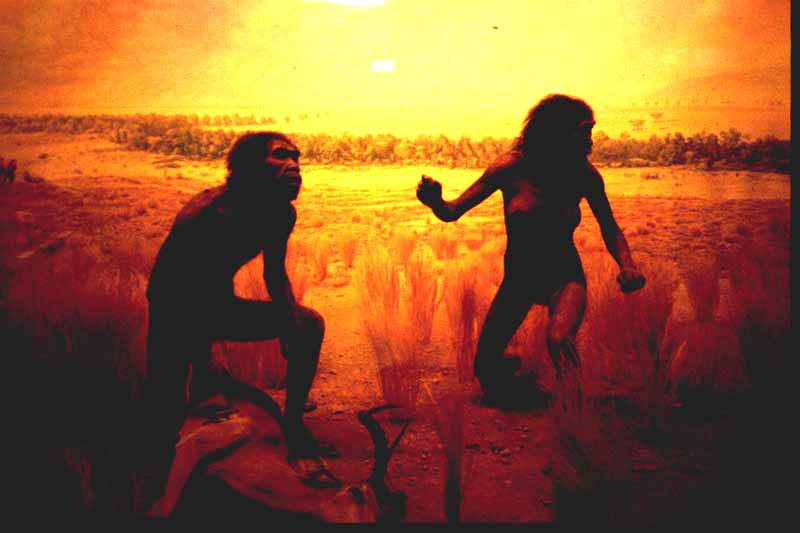massive change

We are fa-mi-lee (all the little hobbits and me)
Well, it happened.
The evening after we checked out Bruce Mau’s pathologically optimistic, Helvetica typed orgy of techno-libertarianism at the Vancouver Art Gallery, the great. black jack boot of Republicanism replanted itself firmly on top of America’s howling head.
Massive change? Or massive entrenchment?
Of course many of us had felt in our guts that this might happen, but we had somehow blocked out the possibility, of this, the “imagined unimaginable.” Doubtlessly, intellectuals all over the world are still sputtering about the outcome not being “rational”, but fear has its own rationale and xenophobia is a powerful rallying cry. So for now, and for the next four years, the dank fog of fundamentalism billows forth from the anus of the superpower, smothering the forces of secular humanism, scorching the earth and flowing through the cracks into the deepest recesses of our houses. We need to get with the program: Church now equals State and Eurasia has always been at war with Oceania.
The election post-mortem has been suitably disturbing to those not too despondent to pick though the smoldering corpses of the political killing field. Simon Schama weighs in with a brilliant scathing analysis in the Guardian which made me want to weep. With lightning speed, an interesting study appeared, which correlated the average IQ of a state’s population with whether it voted predominantly Democrat or Republican. Surprise, surprise, the “blue” states are smarter.
But thinking too much has become a handicap in this new world order. The Purple-USA map gives another cartographic insight into how America voted and helps remove some of the sense of extreme polarization connoted by the more conventional representations, which divided the country up into blue coasts and a vast red heartland. Not that that helps either. In this winner-takes-all political system, the politics of fear and fundamentalism are now, more than ever, firmly in control.
Groggy and shell-shocked from watching election coverage late into the night, Laura, Ruth and I needed to clear our fevered heads and set out on a walk towards Vancouver’s sea shore. It was a kind of a fin-de-siecle moment as the long, low rays of fading sunlight bathed the late fall afternoon in a warm and golden glow. Out beyond the seawall, thousands of sea ducks, bobbed on the crystalline lapis blue wavelets of the Pacific, forming a great raft that carpeted a large section of the sea. Suddenly and without warning a small tendril of ducks separated itself from the mass and started flying outward across the surface of the ocean like the beginning of a strange avian solar prominence. More and more ducks took off, joining the stream until it developed into a steady, seething, torrent, accompanied by an eerie, high-pitched synchronized whooping sound. Eventually, the originally huge flock had almost completely evaporated, re-coalescing somewhere distant down the coastline. Yet a group of a few determined stragglers, steadfastly remained in the original location, gliding independently through the cool sea, indifferent to the twitching, writhing consensus that had so rapidly abandoned them.
I couldn’t help but think how the flocking (or in polling parlance, “trending”) of this great mass of bobbing black ducks, somehow mirrored the voting behaviour of the many otherwise decent Americans who, panicked by an emerging geopolitical complexity, blindly followed the comforting, farty scent of right-wing orthodoxy, into that great Christian theme park in the sky. Why else would so many, so obviously disenfranchised people in America’s heartland vote against what would rationally seem to be in their best interest? Fundamentalism is full of flock tropes, and not without reason. While a flock is a self-organizing system, it moves as one and can be easily controlled by small inputs of fear. As Temple Grandin has pointed out, following the frightened herd is a basic instinct, even if it leads us up the ramp to the slaughterhouse. Rationality is about consciously resisting this temptation. Maybe the smaller group of ducks that remained behind was onto something. On November 2nd, rationality failed to achieve critical mass in America and for that it (and the world) will pay a hefty price.
No one appreciates this more than the spectral Osama bin Laden, who briefly interrupted the torrent of pumped up pre-presidential polemics, deus ex machina, appearing (let’s face it) strangely Christ-like. Riding on the back of a donkey through Tora Bora’s incinerated rubble, he somehow evades the satellite-guided armamentarium aimed at him by the most powerful army in history of the planet. As if by magic, he floats down through the rumors of his own death, to be resurrected in a makeshift television studio, somewhere on Pakistan’s frontier. From his broadcast quality, videotaped sermon, he points a long, graceful, admonishing finger at the Cyclopean electronic eye of the superpower and says:
“It is better to return to the truth than persist in error.”
Of course, bin Laden, if he indeed was responsible for the catastrophe of 9/11, can rightly be called a terrorist. But his uncanny ability to stay “on message” and to concentrate on “values” puts his communications strategy uncannily close to that which has once again won the White House.
The great blinding news supernova of the American election largely eclipsed what to me was one of the most intriguing news stories of a lifetime. In an epochal, out-of-blue strike against fundamentalism’s long-held sense of human species exceptionionalism, tiny hobbit sized skeletons of adult “people” were found in a cave on the Indonesian island of Flores. These bones are too recent in origin to be called fossils and their owners were clearly contemporary with our own species. In fact the skeletons are essentially a version of *us* – not Homo sapiens but Homo floresiensis. This discovery implies that many of the world’s charming myths of Leprechauns, elves and assorted little people could well have been based in fact. It seems that these secretive cousins of ours have shared the planet with us, if not right at this moment, at least within the historical time frame of our species’ memory. Maybe, just possibly, there are still some Homo floresiensis left alive, hiding in remote limestone caves, holding their grapefruit sized heads in their hands and weeping at the mess we have made of our once green world. Their secretiveness may be their only hope.
But on the other hand, if we ever get to meet our furry little cousins, it would be wonderful. What a great reassertion of our own, essentially biological, animal nature. I wonder what we would talk about ? Desmond Morris weighs in on what a meeting between ourselves and a living Homo floresiensis, or “Mini-Man”, might mean to religious fundamentalism. Morris argues that we have created a chasm between us and other animals, so large that much of the human population doesn’t even believe we are related to animals -that we are in effect some kind of special creation, unique in our possession of a soul. Meeting Home floreseiensis, who scientists say clearly had the ability to make sophisticated tools, used language and co-operated in some kind of social structure, could at last bring us home into the warm and fuzzy embrace of our own animal nature.
If we don’t kill them first.



